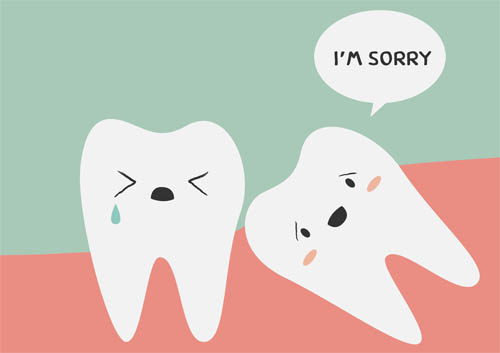Warning Signs of Impacted Wisdom Teeth
April 6th, 2016

When your wisdom teeth start to emerge it can definitely be painful, but it can be even worse if your wisdom teeth become impacted. Impacted wisdom teeth are trying to erupt but are unable to do so because there is not sufficient room for them to emerge. This usually means that your wisdom teeth are painfully lodged in your jawbone.
While you may not see any real signs of the emerging wisdom teeth when they are impacted, what you can’t see can still definitely hurt you. Some of the indicators of impacted wisdom teeth are listed below.
- Jaw Pain: Pain in the back of your jaw is a common indicator of impacted wisdom teeth. The pain often concentrates in the area around your gums.
- Changes in the Mouth: You may notice some changes in your mouth when you have impacted wisdom teeth. Reddish gums, swelling in the jaw, bleeding gums, and bad breath can all be indicators that you are dealing with impacted wisdom teeth.
- Headaches: If you suddenly start having headaches, especially at the same time as some of the other issues mentioned above, they may indicate impacted wisdom teeth.
- Chewing Issues: Problems with chewing normally can indicate impacted wisdom teeth. If you are having trouble making the chewing motions because your mouth won’t quite open and close as easily as it used to, impacted wisdom teeth may be the culprit.
The Solution
If you are suffering from impacted wisdom teeth, the best solution is usually going to be removal. This is not a problem that will resolve naturally, and in fact, your pain and other symptoms may worsen as your wisdom teeth become increasingly impacted. At Blair Ridge Dental, Dr. Sardzinski, Dr. Wilken, Dr. Stanley, Dr. Hanson and Dr. Heying can review the details of wisdom teeth removal surgery with you and help you determine if this is the best solution for your situation.




